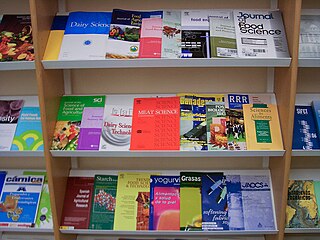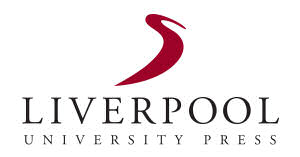
In academic publishing, a scientific journal is a periodical publication designed to further the progress of science by disseminating new research findings to the scientific community. These journals serve as a platform for researchers, scholars, and scientists to share their latest discoveries, insights, and methodologies across a multitude of scientific disciplines. Unlike professional or trade magazines, scientific journals are characterized by their rigorous peer review process, which aims to ensure the validity, reliability, and quality of the published content. With origins dating back to the 17th century, the publication of scientific journals has evolved significantly, playing a pivotal role in the advancement of scientific knowledge, fostering academic discourse, and facilitating collaboration within the scientific community.

Academic publishing is the subfield of publishing which distributes academic research and scholarship. Most academic work is published in academic journal articles, books or theses. The part of academic written output that is not formally published but merely printed up or posted on the Internet is often called "grey literature". Most scientific and scholarly journals, and many academic and scholarly books, though not all, are based on some form of peer review or editorial refereeing to qualify texts for publication. Peer review quality and selectivity standards vary greatly from journal to journal, publisher to publisher, and field to field.

An academic journal or scholarly journal is a periodical publication in which scholarship relating to a particular academic discipline is published. They serve as permanent and transparent forums for the presentation, scrutiny, and discussion of research. They nearly universally require peer review for research articles or other scrutiny from contemporaries competent and established in their respective fields.

Elsevier is a Dutch academic publishing company specializing in scientific, technical, and medical content. Its products include journals such as The Lancet, Cell, the ScienceDirect collection of electronic journals, Trends, the Current Opinion series, the online citation database Scopus, the SciVal tool for measuring research performance, the ClinicalKey search engine for clinicians, and the ClinicalPath evidence-based cancer care service. Elsevier's products and services include digital tools for data management, instruction, research analytics, and assessment. Elsevier is part of the RELX Group, known until 2015 as Reed Elsevier, a publicly traded company. According to RELX reports, in 2022 Elsevier published more than 600,000 articles annually in over 2,800 journals; as of 2018 its archives contained over 17 million documents and 40,000 e-books, with over one billion annual downloads.
Bloomsbury Publishing plc is a British worldwide publishing house of fiction and non-fiction. Bloomsbury's head office is located on Bedford Square in Bloomsbury, an area of the London Borough of Camden. It has a US publishing office located in New York City, an India publishing office in New Delhi, an Australian sales office in Sydney CBD, and other publishing offices in the UK, including in Oxford. It is listed on the London Stock Exchange and is a constituent of the FTSE 250 Index.

The MIT Press is the university press of the Massachusetts Institute of Technology (MIT), a private research university in Cambridge, Massachusetts. The MIT Press publishes a number of academic journals and has been a pioneer in the Open Access movement in academic publishing.
Springer Science+Business Media, commonly known as Springer, is a German multinational publishing company of books, e-books and peer-reviewed journals in science, humanities, technical and medical (STM) publishing.
SCIgen is a paper generator that uses context-free grammar to randomly generate nonsense in the form of computer science research papers. Its original data source was a collection of computer science papers downloaded from CiteSeer. All elements of the papers are formed, including graphs, diagrams, and citations. Created by scientists at the Massachusetts Institute of Technology, its stated aim is "to maximize amusement, rather than coherence." Originally created in 2005 to expose the lack of scrutiny of submissions to conferences, the generator subsequently became used, primarily by Chinese academics, to create large numbers of fraudulent conference submissions, leading to the retraction of 122 SCIgen generated papers and the creation of detection software to combat its use.

The European Geosciences Union (EGU) is a non-profit international union in the fields of Earth, planetary, and space sciences whose vision is to "realise a sustainable and just future for humanity and for the planet". The organisation has headquarters in Munich, Germany. Membership is open to individuals who are professionally engaged in or associated with these fields and related studies, including students, early career scientists and retired seniors.

Sage Publishing, formerly SAGE Publications, is an American independent academic publishing company, founded in 1965 in New York City by Sara Miller McCune and now based in the Newbury Park neighborhood of Thousand Oaks, California.

Liverpool University Press (LUP), founded in 1899, is the third oldest university press in England after Oxford University Press and Cambridge University Press. As the press of the University of Liverpool, it specialises in modern languages, literatures, history, and visual culture and currently publishes more than 150 books a year, as well as 34 academic journals. LUP's books are distributed in North America by Oxford University Press.
Dove Medical Press is an academic publisher of open access peer-reviewed scientific and medical journals, with offices in Macclesfield, London, Princeton, New Jersey, and Auckland. In September 2017, Dove Medical Press was acquired by the Taylor and Francis Group.

PLOS One is a peer-reviewed open access mega journal published by the Public Library of Science (PLOS) since 2006. The journal covers primary research from any discipline within science and medicine. The Public Library of Science began in 2000 with an online petition initiative by Nobel Prize winner Harold Varmus, formerly director of the National Institutes of Health and at that time director of Memorial Sloan–Kettering Cancer Center; Patrick O. Brown, a biochemist at Stanford University; and Michael Eisen, a computational biologist at the University of California, Berkeley, and the Lawrence Berkeley National Laboratory.

Nova Science Publishers is an academic publisher of books, encyclopedias, handbooks, e-books and journals, based in Hauppauge, New York. It was founded in 1985. Nova is included in Book Citation Index and scopus-indexed. A prolific publisher of books, Nova has received criticism from librarians for not always subjecting its publications to academic peer review and for republishing public domain book chapters and freely-accessible government publications at high prices.
MDPI is a publisher of open-access scientific journals. It publishes over 390 peer-reviewed, open access journals. MDPI is among the largest publishers in the world in terms of journal article output, and is the largest publisher of open access articles.
The Centre for Research into Freemasonry and Fraternalism at the University of Sheffield was founded in 2000. Its aim was scholarly research into freemasonry and related fraternal associations. The activities of the centre were suspended in 2010.

Brill Academic Publishers, also known as E. J. Brill, Koninklijke Brill, or Brill, is a Dutch international academic publisher of books and journals.
Scholarly peer review or academic peer review is the process of having a draft version of a researcher's methods and findings reviewed by experts in the same field. Peer review is widely used for helping the academic publisher decide whether the work should be accepted, considered acceptable with revisions, or rejected for official publication in an academic journal, a monograph or in the proceedings of an academic conference. If the identities of authors are not revealed to each other, the procedure is called dual-anonymous peer review.

Predatory publishing, also write-only publishing or deceptive publishing, is an exploitative academic publishing business model, where the journal or publisher prioritizes self-interest at the expense of scholarship. It is characterized by misleading information, deviates from the standard peer-review process, is highly non-transparent, and often utilizes aggressive solicitation practices.
ANU Press is a new university press (NUP) that publishes open-access books, textbooks and journals. It was established in 2004 to explore and enable new modes of scholarly publishing. In 2014, ANU E Press changed its name to ANU Press to reflect the changes the publication industry had seen since its foundation.











